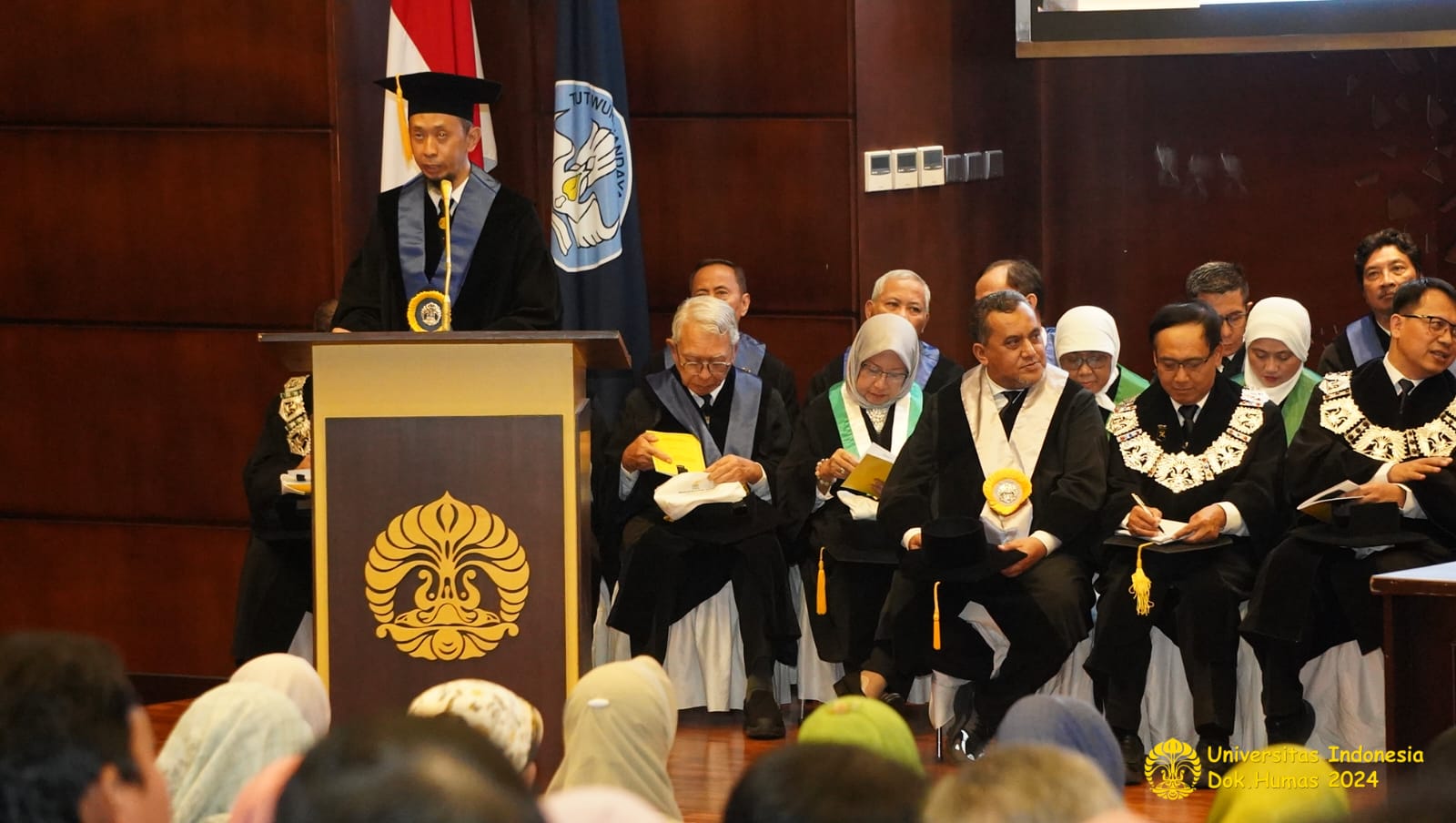In his speech, Prof. Arief highlighted how society is currently amazed by the advancements in Generative Artificial Intelligence (GenAI). This technology allows electronic devices to learn and make decisions based on data. AI development continues to propel the progress of electronic devices, making them smarter and more responsive to users’ needs. This results in society’s dependence on sophisticated tools that aid in daily activities.
On the other hand, Prof. Arief noted that society is also confronted with the reality of military drones and missiles capable of being launched from thousands of kilometres away and hitting targets with high precision. This reality underscores that electronic technology goes beyond communication and entertainment devices; it has evolved into a geopolitical and national security issue.
This trend reflects how electronic devices are increasingly integrated into daily life, offering greater comfort and functionality while posing potential threats to human survival. “Behind all this sophistication and convenience is a small chip/IC containing thousands to tens of billions of semiconductor devices in micro or nanometer sizes. Chips have become the core of all modern technological advancements,” said Prof. Arief. He also emphasized the importance of a deep understanding of electronic devices and how electron-hole pairs (electrons and holes) within them drive the technological advancements society enjoys today.
He further explained that semiconductor development is a key factor determining global economic strength. The chip and semiconductor industry, now a giant industry, contributes to the global economy and significantly influences geopolitics. Therefore, he stressed the current challenges in semiconductor technology, especially as physical limitations arise with device sizes approaching atomic dimensions.
As a solution, Prof. Arief introduced “Beyond CMOS” technologies, such as Single Electron Transistors (SET), organic electronics, and Tunnel Field-Effect Transistors (FET), which have the potential to usher in a new era of device efficiency and capability.
Based on these developments, Prof. Arief called on all parties—including the government, academia, and industry—to unite in building a national semiconductor ecosystem that can support Indonesia’s technological independence. He also commended the Indonesian government’s efforts in establishing a semiconductor ecosystem roadmap through the Indonesian Semiconductor Consortium (ICDeC), involving 16 universities and industries to support chip design development in Indonesia.
“Given the urgency and strategic importance of this technology, as an academic, I invite everyone to work together in preparing the nation’s best talents to become semiconductor artisans for the welfare and independence of Indonesia,” he said.
“The inauguration of Prof. Arief Udhiarto as a Professor in Nanoelectronics Device Science at FTUI is an important step for us to delve deeper into and advance semiconductor technology in Indonesia. This technology not only serves as the foundation of devices that facilitate our daily lives but also plays a key role in the global economic landscape. With a strong ecosystem and cross-sector collaboration, we can build national independence and competitiveness in the semiconductor industry. I invite all parties to continue supporting and preparing the best talents for our nation’s technological independence,” said FTUI Dean, Prof. Dr. Ir. Heri Hermansyah, S.T., M.Eng., IPU.
Prof. Dr.Eng. Ir. Arief Udhiarto, S.T., M.T., IPU, completed his undergraduate and master’s studies at FTUI, earning a Bachelor’s in Engineering in 2001 and a Master’s in Engineering in 2004. He later obtained a Doctor of Engineering in Nanovision Technology from Shizuoka University, Japan, in 2012, and earned his Engineer’s Professional Degree at FTUI in 2023. He is known for actively producing scientific work published in national and international journals. Some of his publications include Fabrication of Organic Light Emitting Diodes (OLEDs) using the Lamination Method in a Vacuum-Free Environment (2023); Probing Ionization Characteristics of Under-Water Plasma Arc Discharge Using Simultaneous Current and Voltage Versus Time Measurement in Carbon Nanoparticle Synthesis (2022); and Band-to-Band Tunneling Mechanism Observed at Room Temperature in Lateral Nondegenerately Doped Nanoscale p-n and p-i-n Silicon Devices (2021).
The professor’s inauguration ceremony, led by UI Rector Prof. Ari Kuncoro, S.E., M.A., Ph.D., was attended by various distinguished guests, including the Metro Depok Police Chief Arya Perdana, S.H., S.I.K., M.Si.; the Chair of the Technical Committee 07-03 Nanotechnology, National Standardization Agency and Head of the Energy and Manufacturing Research Organization, BRIN Dr. Haznan Abimanyu; Project Coordinator of the UI-JICA Project for Human Resources Development, Ms. Hitomi KOTAKA; and former North Sulawesi Police Chief (2021-2022) Inspector General (Ret.) Drs. Mulyatno, S.H., M.M.
***
Office of Public Communication
Faculty of Engineering Universitas Indonesia






